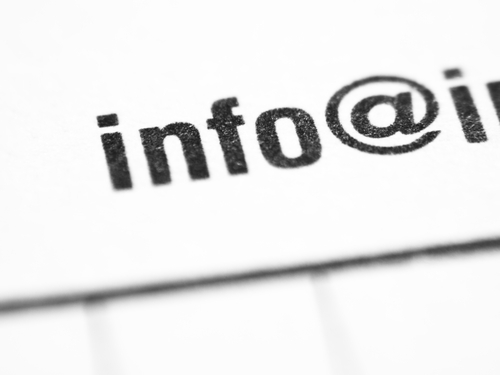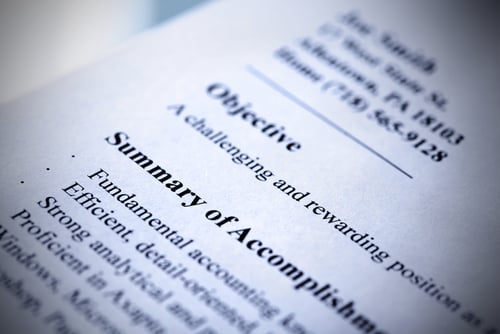CV Mistakes- Today, employers receive approximately 250 job applications per job posting, and to get their work done, 95% of them rely on ATS software to filter job applications and eliminate unqualified candidates.
So, even if you succeed in convincing the recruiter to pass on your CV, you still have to shine and impress the recruiter. Convincing him requires first eliminating everything that might distract him from your skills and qualifications to encourage him to read your CV to the end.
So, what's wrong with a modern CV? Here are 18 Common Mistakes You Should Avoid to Get A Job:
Irrelevant Personal Information

Yet, there is another sort of "personal information" that you should never mention in your CV as long as they are not requested explicitly in the job description.
At the top of this information comes the birth date, gender, religion, and nationality. It's illegal to reject an employee because of his nationality, age, or gender in almost all countries under the Equality Law worldwide.
Still, unconscious bias exists, so you have to be smart while writing your CV and keep away every detail that could work against you.
If your marital status, religious convictions, or political preferences are not substantially relevant to your application, avoid mentioning them in your CV and concentrate on the professional qualities that make you a perfect candidate.
Unprofessional Email Address

Several Phone Numbers

"Objectives" Section

Buzz lines that all recruiters memorize by heart and wish they could get rid of reading them.
Your CV should make the recruiter stare at your abilities, keep his coffee away, and run across his desks for the phone to contact you and make an initial decision that you are the perfect hire.
So, instead, try writing a summary section that's short, straightforward, and shows your value. For example, "A senior content writer with 10 years of experience writing different forms of content in many areas and managing large teams."
Of course, journalists do this all the time. They craft headlines that inform you what the story is about and tease you just enough to get you to keep reading. In the same way, your introduction should be catchy and do the same.
"Soft Skills" Section

Buried Achievements

So, you have to understand that mentioning your achievements should be highlighted and backend with numbers; read this to unleash your achievements and quantify your unique strength points: CV Writing: How to Make Your CV Shine with Numbers?|Drjobpro.com
Pronouns

Grammatical And Spelling Mistakes

And if you're having trouble spotting errors on your resume, hire a professional, counselor, or friend, or use proofreading software like Grammarly.
Employment Gaps

So, don't mention it in your CV and only mention it in the job interview (if you are asked to talk about it) and make sure there are solid justifications and evidence that you have made good use of those gaps, such as attending training courses or working as a freelancer.
False or Deceptive Details

They are experienced in exploring claims related to skills, average salary, job titles, and achievements. And what they can't figure out with experience by doing a quick Google search to show them everything about you as a person and as an employee.
"References" Section

A Lengthy, Rambling CV

Use action verbs, highlight your transferrable skills, quantify your achievements. Think about how to sell yourself to the potential employer by showing off how you will be a solution to all his problems.
Moreover, avoid mentioning events that happened tens of years ago; there is no need to mention that you attended an ICDL course in 1990 while your work already depends on using MS programs.
Salary Details

Unless it's discussed during the interview, close this financial chapter until it's time to negotiate your new salary with the new employer.
Bad Format

Also, keep ATS in mind as you write it and make an effort to make your resume readable on all screens as many employers use algorithms that scan resumes for keywords and assign you a score based on how well your resume matches their needs.
Use the exact keywords on your resume in the job description, and don't add any images, tables, or anything else that the system won't recognize as text.
Use Calibri or Arial font styles in 11- or 12-point sizes. Italics, strong text, and colors should be used discreetly, and frames and tables should be avoided, as they can all detract from the text.
Should you send your CV in Word or PDF file? Find the answer!
Embedded Visuals

Keep all the photos you want to submit in your portfolio.
Links

Add links to your Linkedin profile and a link to your portfolio only.
Bad Words About Your Current Employer

Irrelevant Hobbies

Recommended Reading:
- How to Write A CV with No Mistakes in Minutes?|Drjobpro.com
- CV Writing: How to Tailor Your CV to a Specific Job Description?|Drjobpro.com
- How to Write A CV with No Mistakes in Minutes?|Drjobpro.com
Conclusion Statement

To Conclude,
You have to look for ways to stand out and follow them, and the first of these is to avoid common mistakes when writing resumes and delete everything that is not useful immediately.
Do you have any tips you would like to share with us? Mention it in the comments below!







 2024-12-16
2024-12-16
 2024-12-09
2024-12-09
 2024-10-23
2024-10-23
 2024-09-04
2024-09-04
 2024-08-27
2024-08-27